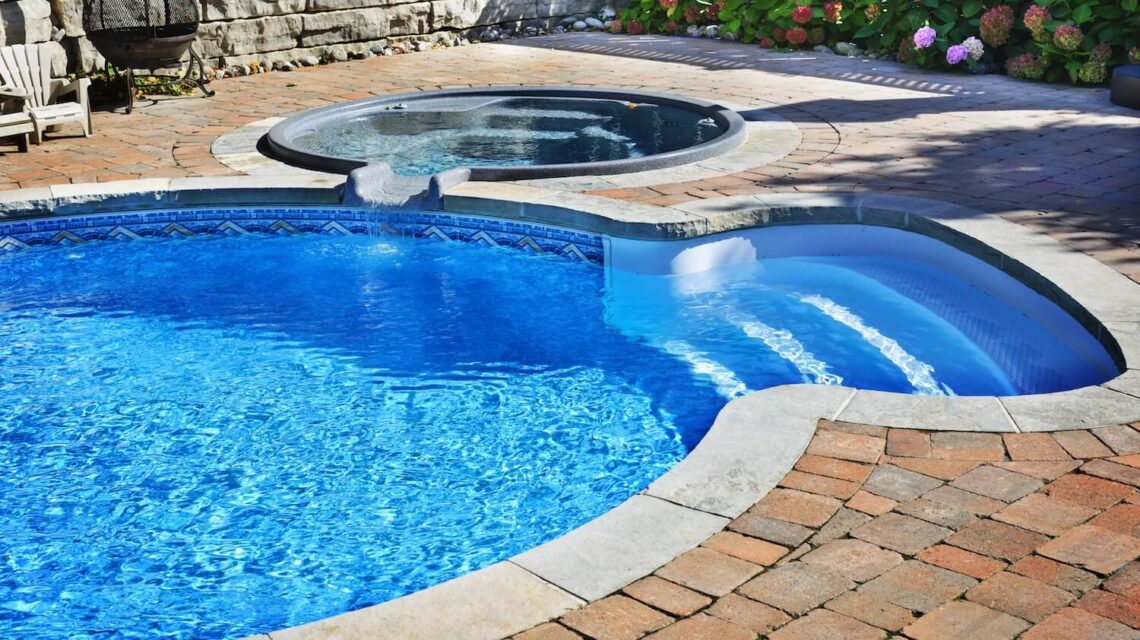A swimming pool is a luxurious addition to any property, offering relaxation, entertainment, and exercise opportunities. However, over time, the surface of a pool can wear down, becoming cracked, stained, or rough. When this happens, pool resurfacing becomes necessary to restore its beauty and functionality. In this comprehensive guide, we will explore the steps involved in pool resurfacing, discuss associated costs, and provide maintenance tips to ensure your pool remains pristine for years to come.
Understanding Pool Resurfacing
Pool resurfacing is the process of applying a new layer of material to the interior surface of a swimming pool. This is typically done to repair damage, improve aesthetics, and extend the lifespan of the pool. There are several materials commonly used for pool resurfacing, including plaster, pebble aggregate, fiberglass, and tile. Each material has its unique characteristics, benefits, and considerations, so it’s important to choose the right option based on your specific needs and budget.
Steps Involved in Pool Resurfacing and Finishes
Assessment and Preparation
- Before beginning the resurfacing process, the pool will need to be thoroughly inspected to assess the extent of the damage and determine the best course of action.
- Any existing surface material will need to be removed, and the pool will need to be cleaned and prepared for the new finish.
Repairing Damage
- Cracks, chips, and other imperfections in the pool surface will need to be repaired before the new finish can be applied.
- This may involve patching cracks, replacing damaged tiles, or smoothing out rough areas.
Applying the New Finish
- Once the surface has been properly prepared, the new finish can be applied.
- The application method will depend on the chosen material, whether it’s plaster, pebble aggregate, fiberglass, or tile.
- Each material will have its own specific application requirements and drying times, so it’s important to follow the manufacturer’s instructions carefully.
-
Curing and Finishing Touches
- After the new finish has been applied, it will need time to cure properly.
- During this time, it’s important to monitor the pool’s water chemistry and make any necessary adjustments to ensure proper curing.
- Once the finish has cured, any final touches, such as adding grout between tiles or applying a sealant, can be completed.
Costs of Pool Resurfacing
The cost of pool resurfacing can vary widely depending on factors such as the size of the pool, the chosen resurfacing material, the extent of the damage, and the contractor’s labor rates. On average, however, homeowners can expect to pay anywhere from $3,000 to $10,000 for pool resurfacing. Here’s a breakdown of some common costs associated with pool resurfacing:
- Material Costs:
- Plaster: $3 to $7 per square foot
- Pebble Aggregate: $5 to $15 per square foot
- Fiberglass: $10 to $20 per square foot
- Tile: $20 to $50 per square foot
- Labor Costs:
- Labor costs typically range from $50 to $100 per hour, depending on the contractor’s experience and location.
- Additional Costs:
- In addition to the cost of materials and labor, homeowners may also need to budget for additional expenses such as equipment rental, permit fees, and any necessary repairs.
Maintenance Tips for a Newly Resurfaced Pool
Once your pool has been resurfaced, it’s important to take proper care of it to ensure it remains in good condition for years to come. Here are some maintenance tips to help you keep your newly resurfaced pool looking its best:
Maintain Proper Water Chemistry
- Regularly test the water chemistry and make any necessary adjustments to ensure proper pH, alkalinity, and chlorine levels.
- Imbalanced water chemistry can cause damage to the pool surface over time, so it’s important to stay on top of maintenance.
Clean the Pool Regularly
- Skim the surface of the pool to remove leaves, insects, and other debris.
- Vacuum the pool regularly to remove dirt and debris from the bottom.
- Brush the walls and floor of the pool to prevent algae growth and keep the surface clean.
Avoid Damage
- Avoid using sharp objects or abrasive cleaners on the pool surface, as these can cause scratches and damage.
- Be mindful of the chemicals you use in and around the pool, as some can cause damage to the surface if not used properly.
Schedule Regular Inspections
- Schedule regular inspections with a professional pool technician to catch any issues early and prevent costly repairs down the line.
- Address any minor issues promptly to prevent them from becoming larger problems.
Professional Pool Maintenance at Home
While regular maintenance is crucial for keeping your pool in top condition, sometimes it’s best to leave the job to the professionals. Here’s why hiring a professional pool maintenance service is important:
Expertise and Experience
- Professional pool maintenance technicians have the knowledge and experience to properly care for your pool.
- They understand the intricacies of pool chemistry, equipment maintenance, and repair, allowing them to address issues quickly and effectively.
Time and Convenience
- Pool maintenance can be time-consuming and labor-intensive, especially for busy homeowners.
- Hiring a professional pool maintenance service frees up your time, allowing you to enjoy your pool without the hassle of maintenance tasks.
Proper Equipment and Tools
- Professional pool maintenance technicians have access to specialized equipment and tools that may not be readily available to homeowners.
- They can efficiently clean and maintain your pool using high-quality equipment, ensuring optimal results.
Preventative Maintenance
- Professional pool maintenance services offer preventative maintenance programs to help prevent costly repairs down the line.
- By regularly inspecting and servicing your pool, they can identify and address minor issues before they escalate into major problems.
Compliance with Regulations
- In many areas, there are regulations and guidelines governing the maintenance and operation of swimming pools.
- Professional pool maintenance technicians are familiar with these regulations and can ensure that your pool remains in compliance.
Peace of Mind
- Hiring a professional pool maintenance service provides peace of mind knowing that your pool is being properly cared for by experts.
- You can relax and enjoy your pool knowing that it’s in good hands and will be ready whenever you want to take a dip.
Professional pool maintenance services typically offer a range of services, including regular cleaning, chemical balancing, equipment inspections, and repairs. By entrusting your pool maintenance to a professional, you can enjoy all the benefits of pool ownership without the stress and hassle of upkeep.
Conclusion
Pool resurfacing is an important maintenance task that can help prolong the life of your swimming pool and keep it looking beautiful for years to come. By understanding the steps involved in the resurfacing process, being aware of associated costs, and following proper maintenance tips, you can ensure that your pool remains a source of enjoyment and relaxation for you and your family.




